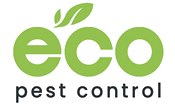How To Prevent Pests
Best Way To Prevent Pest Infestation
Dealing with pests in your home can be frustrating and annoying. From ants invading your kitchen to mice and rats scurrying around in your basement, and flies buzzing around your fruit bowl, they always seem to find their way inside, no matter how clean you keep your home. The good news is that with some diligent prevention methods, you can stop them before they ever become a problem.
Read on to learn the best ways to pest-proof your home with practical information and tips.
1. Block Entry Points
An important step in pest prevention is to seal up any cracks or crevices where they can enter your home. Carefully inspect the outside perimeter of your home, looking for gaps around pipes, vents, windows, doors, the foundation, and other vulnerable areas. Use caulk or expandable spray foam to plug up holes, cracks, or gaps wider than 6 mm. Pay special attention to entry points for the specific types of pests you want to prevent.
- Ants and other insects – seal cracks in the foundation, around doors and windows.
- Mice – block holes inside and outside larger than 6 mm.
- Bats – seal any openings along the roofline wider than 10 mm.
Installing weather stripping around doors and windows can further deter pests from sneaking inside. Making sure all vents and drains are covered with mesh screening also blocks insects and rodents from crawling or flying in.
2. Remove Food Sources
Pests won’t hang around if they can’t easily find food, so eliminating access to food sources is key. They will eat almost anything they can find, so removing their sources is essential.
- Store all human and pet foods in airtight containers.
- Clean up spilled crumbs, grease, and residue after cooking and eating.
- Take out the trash regularly. Rinse cans and bottles before recycling.
- Keep counters, floors, and the stove top clean and wipe up spills right away.
- Place pet food bowls on trays and clean up right after your pet is finished eating.
- Compost food scraps in a well-sealed bin if you have an outdoor compost pile.
Removing debris, leaf litter, fallen fruits, or nuts around the outside of your home also takes away pests’ source of food and reduces the risk of attracting them.
3. Manage Landscapes Properly
Making your yard less pest-friendly can prevent infestations.
- Keep plants, bushes, and trees trimmed at least 60 cm from exterior walls.
- Get rid of heavy mulch (over 7.5 cm deep).
- Fix leaky hoses and irrigation near your home’s foundation.
- Improve drainage along the perimeter of your home.
- Clean out rain gutters so they don’t overflow.
- Remove decaying leaves, plants, and fruits around your landscape.
Also beware that certain types of landscapes actually attract mice, ants, termites, and others. For example, overgrown shrubbery close to the house can provide shelter for rodents and a breeding ground for mosquito. Opt for pest-resistant plants native to your region.
4. Keep Your Home Clean
While cleaning may not seem directly related to prevention, good housekeeping leaves little opportunity for unwanted pests to thrive.
- Vacuum and mop tile or wood floors regularly.
- Clean kitchen appliances like the refrigerator, microwave, oven, and stove top.
- Take out the garbage frequently and dispose of waste properly.
- Fix leaky plumbing right away and keep drains clean to prevent infestations.
- Ventilate rooms prone to moisture like bathrooms.
- Drain standing water whenever present
5. Maintain Your Home’s Exterior
Your home’s outside requires just as much care and upkeep as the interior to avoid pest problems.
- Pressure wash vinyl siding and clean out clogged weep holes.
- Replace worn weather stripping around doors and windows.
- Fix broken window and door screens right away.
- Seal any openings or cracks wider than 6 mm.
- Clear out clutter in your garage or shed.
- Ensure good drainage around your home’s foundation.
When To Call A Pest Control Company
While DIY prevention methods work for keeping common pests at bay, substantial infestations require professional pest control service. They can cause significant damage to your property, so contact a reputable company if you notice any of the following:
- Visible rodent droppings.
- Termite swarmers emerging inside.
- More than 10 ants regularly appearing in kitchen or bathroom.
- Strong foul odors indicating decay or presence of pests.
- Visible cockroaches in kitchen or bathroom.
- Ongoing issues with the same pests, despite prevention efforts.
If you have any questions or concerns, a professional can provide the right solution. A qualified technician has the proper equipment, expertise, and treatment methods to successfully eliminate tough infestations using traps, baits, and other products. After underlying pest issues are resolved, you can continue DIY prevention methods.
Conclusion
Preventing pest infestation involves diligent effort sealing up entry points, removing the source of water and food, maintaining your house and landscapes properly, and practicing good housekeeping habits. While staying on top of prevention tactics takes commitment, having a pest-free home provides peace of mind and promotes better health.
Many people successfully prevent pests from entering their homes by following these steps. Pay attention to signs of substantial pest populations and immediately call an expert whenever you suspect major issues. Consistent prevention and timely professional control as needed let you proactively manage a variety of pests rather than reactively responding once infestations escalate out of control.



Leave A Comment
You must be logged in to post a comment.